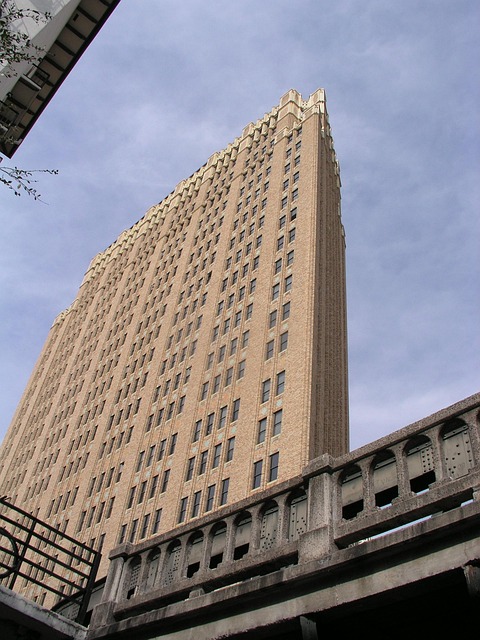Converse residents seeking spam call relief face limitations with "Do Not Call" list protections. Registering stops most telemarketer calls but not non-profits or specific institutions. Hiring a Spam Call law firm in San Antonio offers tailored legal solutions and blocking tools for robust protection. While laws exist, personal data on phone numbers lacks explicit legal defense against spam. Local firms clarify rights and enforce Do Not Call laws for a harmonious balance between personal and professional calls.
“In the bustling city of San Antonio, understanding your rights against unwanted phone calls is crucial. This comprehensive guide navigates the complex world of ‘Do Not Call’ laws, separating myth from reality for Converse residents. We debunk common misconceptions and explore your legal protections under Texas regulations. Learn effective strategies to stop spam calls and discover the consequences of violating these laws. For expert advice tailored to San Antonio’s legal landscape, consult our experienced spam call law firm.”
Debunking Common Do Not Call Myths
Many residents of Converse, like many elsewhere, are puzzled by the “Do Not Call” list and its rules. There are several myths surrounding this important law designed to curb unwanted phone calls. One common misconception is that registering with the Do Not Call list means you’ll never receive any marketing or informational calls again. This isn’t true; it only stops unsolicited calls from for-profit companies, political organizations, and telemarketers.
Another myth is that placing a “Do Not Call” sign on your door or providing your number to a spam call law firm in San Antonio guarantees complete protection. While these steps help, they don’t offer ironclad protection. The Do Not Call list is not all-encompassing, and some calls—like those from non-profit organizations, survey companies, or specific types of financial institutions—are still permitted. Remember, staying informed about your rights and the law’s limitations is key to effective protection against spam calls.
Understanding Your Rights in Texas
In Texas, residents have rights when it comes to unwanted phone calls, especially those considered spam or solicitation. The Texas Business and Commerce Code outlines strict guidelines for telemarketers, including restrictions on certain types of calls and the manner in which they are made. If you’re experiencing a high volume of spam calls from a San Antonio call center, you might be tempted to ignore them or even block the numbers. However, it’s important to know that these aggressive marketing tactics can often mask legitimate legal action.
Understanding your rights is the first step towards protecting yourself from harassment. A reputable Texas spam call law firm can guide residents on how to navigate this complex issue. They can help determine if a particular call falls under federal or state anti-spam laws and advise on the best course of action, whether it’s blocking numbers, filing complaints, or pursuing legal recourse against the offending telemarketers or call centers.
How to Stop Spam Calls Effectively
To effectively stop spam calls, residents of Converse should take proactive steps. First, register for the National Do Not Call Registry by visiting the FTC website or using their dedicated app. This federal list prohibits telemarketers from calling numbers on it, but it’s not foolproof against all spam calls as some unscrupulous businesses may still target you.
Second, consider hiring a Spam Call law firm in San Antonio for more robust protection. These legal experts can help you understand your rights and take legal action against persistent spam call organizers. They often use specialized tools to block numbers and monitor call patterns, offering comprehensive solutions tailored to local laws and regulations.
Legal Implications of Unwanted Calls
The prevalence of unwanted calls, often referred to as spam calls, has led many residents of Converse to believe they are protected from such intrusions due to various “do not call” laws. However, understanding the legal implications is crucial. While federal and state regulations do exist to curb excessive telemarketing practices, they primarily focus on commercial calls, leaving personal or accidental calls largely unregulated. A spam call law firm in San Antonio can provide clarity on these nuances.
When a resident of Converse receives a phone call from an unknown number, it’s often not illegal unless the caller is intentionally targeting them for commercial purposes. Accidental or mistaken calls are generally not punishable under current laws. Moreover, there are no explicit provisions for personal data protection regarding telephone numbers. This means that while excessive spamming can be annoying and intrusive, it may not carry significant legal consequences for the callers, highlighting the importance of staying informed about one’s rights and options in such situations.
The Role of San Antonio's Do Not Call Laws
In the bustling metropolis of San Antonio, Texas, navigating phone calls and unsolicited marketing can be a challenge for residents dealing with persistent spam calls. This is where San Antonio’s Do Not Call laws step in as a vital protection for citizens who wish to control their communication preferences. These laws are designed to curb excessive telemarketing and spam calls, providing residents with the peace of mind to enjoy their personal time without unwanted interruptions.
The local Spam Call law firm in San Antonio plays a crucial role in enforcing these regulations, ensuring that businesses adhere to the Do Not Call list. By registering with this list, residents can block most marketing calls, including those from telemarketers and sales companies. This simple step empowers individuals to manage their phone interactions and create a more harmonious balance between personal and professional communications.






